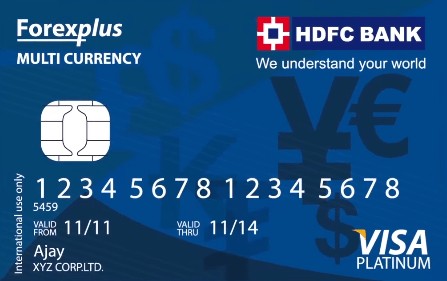Introduction

Image: howtotradeonforex.github.io
Navigating the world of international travel can be a complex and financially daunting experience, especially when it comes to managing currency exchange. Forex cards have emerged as a popular solution, promising convenience and potential savings for travelers. But is a forex card worth the investment? In this comprehensive guide, we will delve into the pros and cons of forex cards, empowering you to make an informed decision about whether one aligns with your travel needs and financial goals.
Defining the Forex Card
A forex card is a prepaid card specifically designed for foreign currency transactions. Essentially, you load it with funds in your home currency, which are then converted to foreign currency when you make purchases or withdraw cash abroad. This eliminates the need to carry cash or exchange currencies at potentially unfavorable rates at the airport or exchange bureaus.
Benefits of Forex Cards
1. Competitive Exchange Rates:
One of the primary advantages of forex cards is the competitive exchange rates they offer. Compared to traditional methods of exchanging currency, such as banks or airport exchange counters, forex cards typically provide lower exchange rate spreads, saving you money on every transaction.
2. Convenience:
Forex cards offer unrivaled convenience, allowing you to access funds seamlessly in multiple countries without juggling different currencies or searching for exchange services. They eliminate the hassle of carrying large amounts of cash and reduce the risk of theft or loss.
3. Security:
Forex cards are PIN-protected and offer multiple security features to safeguard your funds. In case of theft or loss, you can quickly freeze the card to prevent unauthorized use. Additionally, most forex cards provide transaction notifications and online account management tools for real-time visibility of your expenses.
4. Wide Acceptance:
Forex cards are recognized worldwide, accepted at millions of ATMs and merchant locations. This extensive acceptance network ensures that you can use your card almost anywhere you travel, eliminating the need for multiple cards or cash withdrawals.
Considerations
1. Fees:
While forex cards offer competitive exchange rates, they may charge fees for certain transactions. These fees can include ATM withdrawal fees, currency conversion fees, and inactivity fees. It is essential to research and compare the fee structure of different forex card providers before making a decision.
2. Limited Currency Support:
Forex cards typically support a limited number of currencies. If you plan to travel to countries that use currencies not supported by your card, you may incur additional conversion fees or need to supplement with cash or other payment methods.
3. Minimum Balance Requirements:
Some forex cards may require you to maintain a minimum balance in order to access certain benefits or avoid inactivity fees. Ensure that you meet the minimum balance requirement and factor in the replenishment costs if necessary.
Conclusion
Forex cards offer a convenient and potentially cost-effective way to manage foreign currency transactions while traveling. They provide competitive exchange rates, enhance security, and offer wide acceptance, making them a valuable tool for frequent travelers. However, it is crucial to weigh the benefits and considerations carefully, comparing fees, currency support, and minimum balance requirements to determine whether a forex card is the optimal solution for your individual travel needs and financial circumstances.

Image: www.youtube.com
Is Forex Card Worth It






